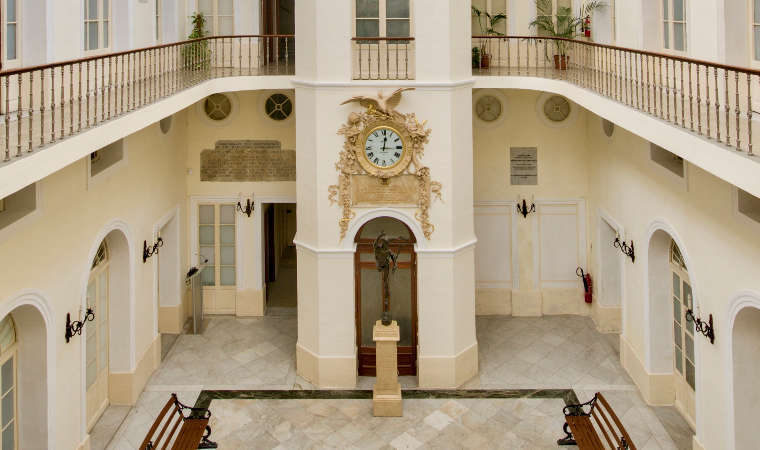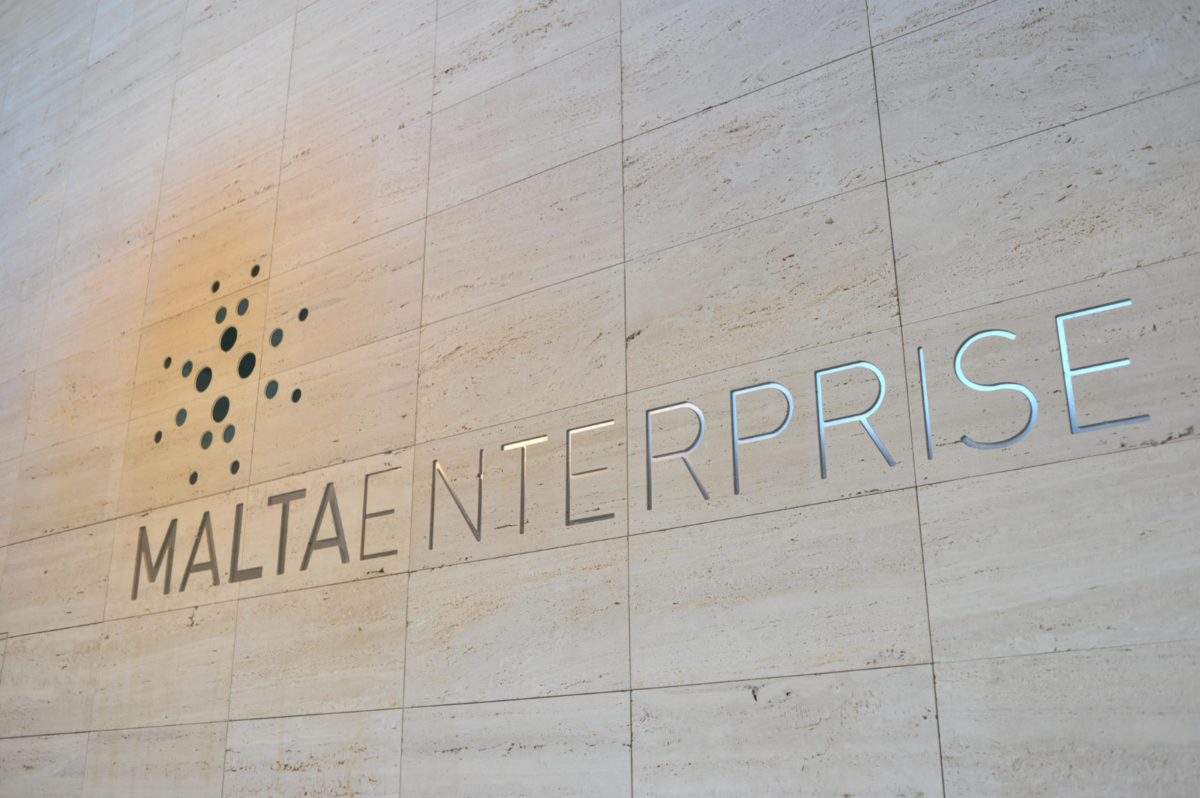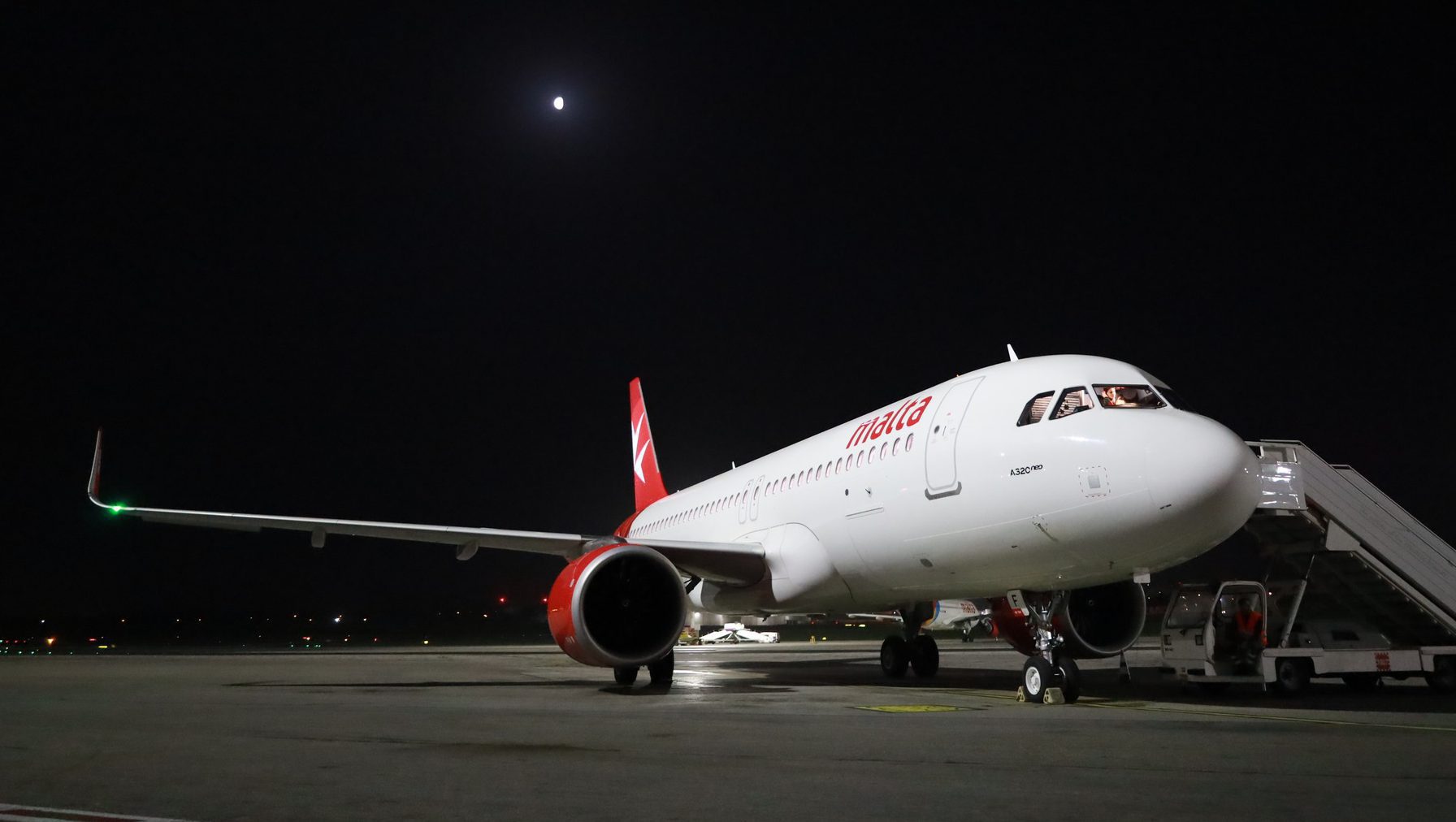On 7th March 2020, exactly three years ago today, Malta recorded its first case of COVID-19. It was a Saturday when Health Minister Chris Fearne confirmed that a 12-year-old girl and her parents, who arrived in Malta from Rome after a holiday, had tested positive for the virus. The girl tested positive first, followed by her parents, and Malta came to grips with a major global event actually impacting its insulated shores.
What followed, aside from more COVID cases, were measures to limit the spread of the virus, triggering an unprecedented economic transformation which adapted to the new reality and has taken root in our post-pandemic life.
If a similar situation re-occured, would history repeat itself?
Stakeholders spoke with this newsroom sharing their understanding of how the COVID-19 pandemic shook up business activity and whether enough was done to adapt to the circumstances.
Within days of the first COVID-19 case, the words ‘working remotely’ were on everyone’s lips as businesses and Government departments adopted the practice for whomever could to limit physical contact.
This decision inevitably accelerated digitalisation, “businesses adopted more ecommerce practices, and also consumers became more capable in using such tools,” spoke Abigail Agius Mamo, CEO of The Malta Chamber of SMEs.

“However, consumers still prefer shopping in person, for the human experience.”
Ms Agius Mamo alluded to the fact that in-store foot traffic had almost returned to pre-pandemic levels.
She also shared details on how consumer habits changed after the pandemic, “people have become accustomed to a simpler way of life, prioritising family time and focusing on comfort,” adding that due to the normalisation of hybrid work, people got used to spending more time at home.
This led to increased interest in home improvement, as more families invested in their homes.
However, being cooped up in beautiful home has its limits. Once travel restrictions were lifted, there was a release valve for the years of pent-up desire to venture out with money to spend.
“Spending not only shifted during the pandemic, but it also was not spent,” explained Ms Agius Mamo.
Due to anxieties surrounding travel restrictions and the risk of infection, many families saved money they would otherwise have spent on their regular trips abroad.
While factors such as consumer habits evolved, certain pressing issues were amplified.
Particularly, the labour shortage.
When the pandemic broke out, it inevitably led to an exodus of foreign workers who returned to their home countries to either stay with their families or were laid off by employers who were unsure how long the pandemic would last.
“Malta was one of the most successful countries in retaining workers during the pandemic.”
However, Malta’s labour market did not go unscathed.
“At first, most businesses were thinking that the pandemic would only last three months, but as time went on not everybody was able to sustain everyone they had in employment,” said Ms Agius Mamo.
“The situation led to a level of uncertainty during the pandemic which did not help either employers or employees. When businesses had to completely close down due to the pandemic, employees did not know for how long their employer could keep them.”
When asked whether, in hindsight, the Government could have done anything differently, Ms Agius Mamo responded pragmatically.
“In the second year, we should have used the lessons learned in the first one. We also needed better accountability and transparency from the health department.”
Ms Agius Mamo added, “Malta did very well during the pandemic but we struggled, especially in the second year.”
She noted that it would not be fair to criticise the steps taken during the first year, however businesses struggled during the second year due to the restrictions, and the SME Chamber was calling for better coordination and balance.
“There was a lack of appreciation of the impact on the country, its way of life, the economy, mental health – we did not manage to balance these out.”
Not every business could adopt remote work and some, such as those in the catering industry literally had to shutdown for days on end. Even when measures eased, it felt as though businesses were on a tightrope walk.
One slip-up leading to a spike of COVID-19 cases would trigger Government authorities to double down on physical distancing rules.
BusinessNow.mt spoke with Tony Zahra, President of the Malta Hotels and Restaurants Association (MHRA) to understand the impact the pandemic had on the catering industry, and whether the Government’s measures to keep the industry operating were sufficient.

“When COVID struck, the authorities took the most drastic action by locking down all hospitality enterprises.”
The hospitality industry went from one day having full revenues and full costs to the following day having zero revenue but all the costs. Clearly there is no business that can sustain itself with zero revenue for more than a few weeks,” said Mr. Zahra.
“If it had not been for the wage supplement the hospitality industry would have been decimated and the rebound, when it arrived in April last year, would have taken many months if not years to return to some normality.”
The Government create far-reaching schemes to support businesses, one of which was the wage supplement, which repeatedly extended until it finally ended on 25th June 2022.
The wage supplement was a scheme operated by Malta Enterprises which was disbursed based on a tapering system. Eligible businesses received up to €800 per month per employee.
When asked whether the wage supplement scheme could have been executed better, Mr Zahra replied, “apart from the first few weeks when the system was being put in place and some minor teething trouble the system worked well and Malta Enterprise, which was the agency tasked with implementing the system is to be commended for a job well done.”
Mr Zahra said that, once COVID-19 restrictions lifted in March 2022, the vast majority of catering outlets had weathered the storm and were able to resume operations.
He also identified a positive development from the pandemic: “the fledgling market for home-delivered meals took off dramatically and today remains a considerable part of the turnover of restaurants and catering outlets. Clearly this new niche market is now well established and will only grow bigger going forward.”
Tony Zahra has been at the helm of the MHRA for several years. In response to a question on how he has seen the hospitality industry change in his time, he responded: “I can recall the international financial meltdown of 2008 when the world entered a severe and deep recession, and it was the hospitality industry that came out of the recession first and possibly pulled all the other industries with it.”
“We saw after COVID a similar situation – the industry started practically at full throttle when the COVID restrictions were lifted.”
Malta’s post-COVID-19 recovery can be attributed to several factors and the impact of Government entities and their collaboration with industry stakeholders can not be underestimated.
The Malta Chamber of Commerce was one of the main actors during the COVID-19 pandemic which worked with Government entities on a number of schemes to support the health of the country’s private sector.
A spokesperson of The Malta Chamber told this newsroom that it was, “the first organisation to recommend that support should start being tapered months before it actually happened.”
“Mere hours after the first local COVID-19 case was diagnosed, The Malta Chamber was lobbying for a scheme with Malta Enterprise to help businesses invest in IT equipment so that people could work from home.”

“Thousands benefitted from the scheme and within days many businesses had shifted to remote working. This ensured a high degree of business continuity in those sectors that were not dependent on incoming tourism for their operations. In parallel, wage support was being negotiated for those sectors that were going to be hit hardest.”
The pandemic also came with its fair share of lessons for The Malta Chamber. The main one being “that it is imperative to stay ahead of the curve to be able to respond effectively to unexpected challenges when they present themselves,” shared the spokesperson.
“The Malta Chamber became more pertinent, and both businesses and Government entities were more forthcoming. Businesses were communicating more frequently and more openly about their difficulties with The Malta Chamber, and Government was listening carefully to The Malta Chamber because it was clear to everyone that the economy was going to be hit hard and hundreds of businesses and thousands of jobs were at stake.”
When asked whether in hindsight the Government or the private sector could have done anything better during the pandemic, The Malta Chamber remarked that COVID was, “a major economic shock and a menacing social experiment of unprecedented proportions. Overall, the policy response to the economic, social and healthcare challenges presented by the pandemic was commendable.”
The spokesperson shared the observation that, “the pandemic exposed the fact that Government departments lacked the desired level of administrative preparedness to handle a crisis of such proportion. Malta Enterprise was tasked with bridging the gaps and rolling out most of the support schemes. Better integration of the IT platforms of entities such as JobsPlus, the Inland Revenue Department, the Malta Business Registry and Malta Enterprise would have facilitated the implementation.”
The Malta Chamber also believes that while the response was successful at saving jobs, it was a, “missed opportunity for a major fitness test, particularly when the wage supplement was extended beyond what was necessary to allow businesses that had a strong business case to survive.”
“As a result, several businesses that would not have survived had COVID-19 not happened, survived because of the assistance that was extended to them due to the pandemic. The country continues to postpone a long overdue introspective evaluation on how to generate higher value by improving our productivity and moving up the economic value chain.”
The spokesperson explained that embracing the acceleration towards digitalisation of business processes and a marked shift towards a low-carbon economy are two crucial transitions which are highly dependent on skills that are in short supply globally.
Asked whether the normalisation of telework has had any impact on the labour market shortage, the spokesperson effectively disagreed, saying that remote and hybrid work only became the norm for a few sectors, for others, it was simply a stop-gap.
“Overall, they hardly had any noticeable effect on labour market shortages, except for motivating some resources to move to remote-friendly sectors, which exacerbated shortages in sectors such as tourism and healthcare where remote working is not an option.”
What The Malta Chamber sees as the real game chamber is comprehensive digitalisation which re-engineers business processes and integrates them seamlessly across departments and locations.
“This is the best response that business can have to the current labour market shortages and ultimately the one that will decide which businesses retain their competitiveness in the long-run and manage to grow sustainably, notwithstanding the human resource shortages which are the major constraint that businesses are facing in the post-pandemic era.”
The spokesperson explained that this requires careful planning, and unlike the shift to remote work, can not happen overnight.
“It also requires significant investment and a highly skilled workforce to be successful.”
The Government entity which was at centre stage for the private sector during the tumultuous pandemic was Malta Enterprise.

It was key to the development and implementation of a large number of support measures such as the aforementioned wage supplement, and a breadth of others which aimed to support, and upgrade the private sector’s capabilities regardless of the enterprise size.
“For us at Malta Enterprise, it was essential to be as proactive as possible rather than being reactive to the changes which the country and industry was going through,” Kurt Farrugia, CEO of Malta Enterprise told this newsroom.
“Thus, we focused on providing the right financial assistance to address companies’ most persisting needs at that time while also working towards continually helping them stay afloat. We saw the whole corporation come together to help those effected by the pandemic. Everyone was pushing themselves to do their utmost to help with the disbursement of funds for the Wage Supplement.”
The entity also created industry specific schemes. One of which was the construction industry scheme, which enabled eligible companies in the sector to receive up to €200,000 to upgrade their machinery into more environmentally conscientious.
While the scheme was meant to run its course between December 2020 and May 2021, by 12th January 2021 it was suspended as the amount of aid requested exceeded the available budget.
Other broader schemes were created to enable businesses to hit the ground running once the economy restarted, such as Change to Grow which provided businesses funds to digitalise, optimise and upgrade their operations, and Micro-Invest tax credit extension which enabled businesses to refurbish their establishments, and purchase necessary commercial equipment.
“We always have to look at the positives of any circumstances which we encounter, I believe that the pandemic made many Maltese businesses realise the importance of digitalisation as well as sustainability.”

“As Malta Enterprise we were one of the first to acknowledge the importance of these two factors which are now being businesses who refuse to see the importance of sustainability will get left behind a world which is ever changing and which now holds sustainability at the forefront of everything that it does now and everything that it plans for the future,” added Mr Farrugia,
As a result the entity “has come up with schemes such as the Smart and Sustainable scheme which helps businesses to work on having sustainable long term solutions rather than solutions which do not look at sustainability.”
It’s fair to conclude that, the experience of the COVID-19 pandemic kickstarted a necessary transformation in the country’s economy and has led to a more resilient, and crisis-ready private sector.
KM Malta Airlines announces extra flights and special fares for MEP and local council elections
To qualify for special fares, all travel needs to take place into and out of the same city
European Parliament adopts regulation making it easier for companies to be paid on time
The maximum credit term under the new Late Payment Regulation is to up to 120 days, for some sectors
French ATC strike forces Ryanair to cancel over 300 flights, affecting 50,000 passengers
The low-cost carrier is demanding the EU carries out reforms to ensure travel continues undisrupted






